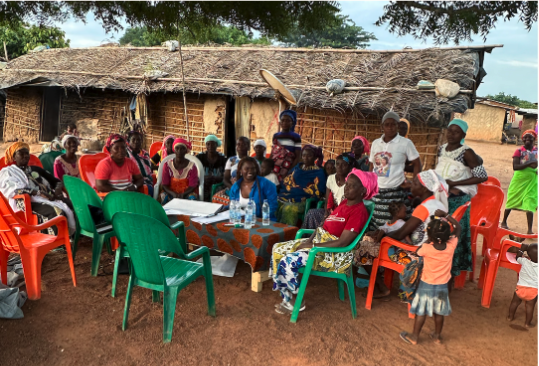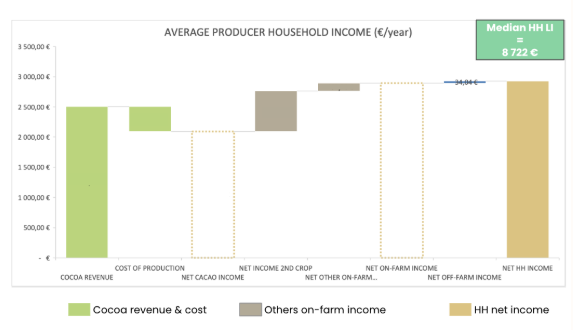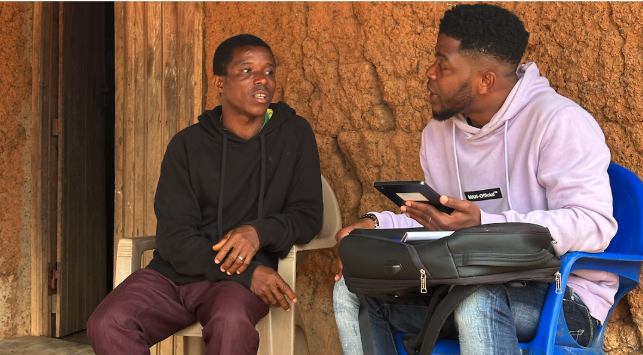MISSION
Study
CASE STUDY
Living income gap
YEAR
2024
CLIENT
Confidential
Assessing the Living Income gap in the Ivorian cocoa supply chain
01

Context
Achieving a Living Income (LI) is crucial for the cocoa sector sustainability, and requires a two to threefold income increase in Côte d’Ivoire. There is growing pressure to develop targeted projects and bridge this gap ;
Upstream actors must first understand the current magnitude of the LI gap of cocoa producers’ households and evaluate how existing programs contribute, identifying ways to enhance their impact.
02

Approach
A LI gap measurement approach based on the harmonized methodology for the cocoa sector proposed in the “Cocoa Household Study” (CHIS), adapted to our context ;
Data collection: household surveys (simple stratified random sampling) and focus group discussions using an annual calendar methodology & gender-based consideration to assess income sources and cash flows. Mixed data sources are used to cross-check information ;
Data analysis: the LI gap is calculated using individual household size-adjusted benchmarks and in-depth analysis to identify key factors influencing households’ incomes ;
Evaluation & recommendations: assessment of current initiatives and high-level recommendations to close the Living Income gap.
03

Key Takeaways
Most cocoa-producing households do not earn a LI, as highlighted in numerous studies. Closing this gap requires a robust strategy ;
Beyond productivity & price: while these factors significantly impact income, focusing only on productivity and price is insufficient, especially for the most vulnerable producers ;
Income diversification: many households already rely on other crops and incomes. Strengthening on and off-farm activities is essential ;
A segmented approach, tailored to different producer profiles, is needed to maximise impacts. A LI strategy should build on existing initiatives rather than introducing brand new ones ;
Going beyond Living Income: achieving a LI is a vital step, but it represents only the minimum for a decent life and will not enable significant reinvestment in farming activities.
